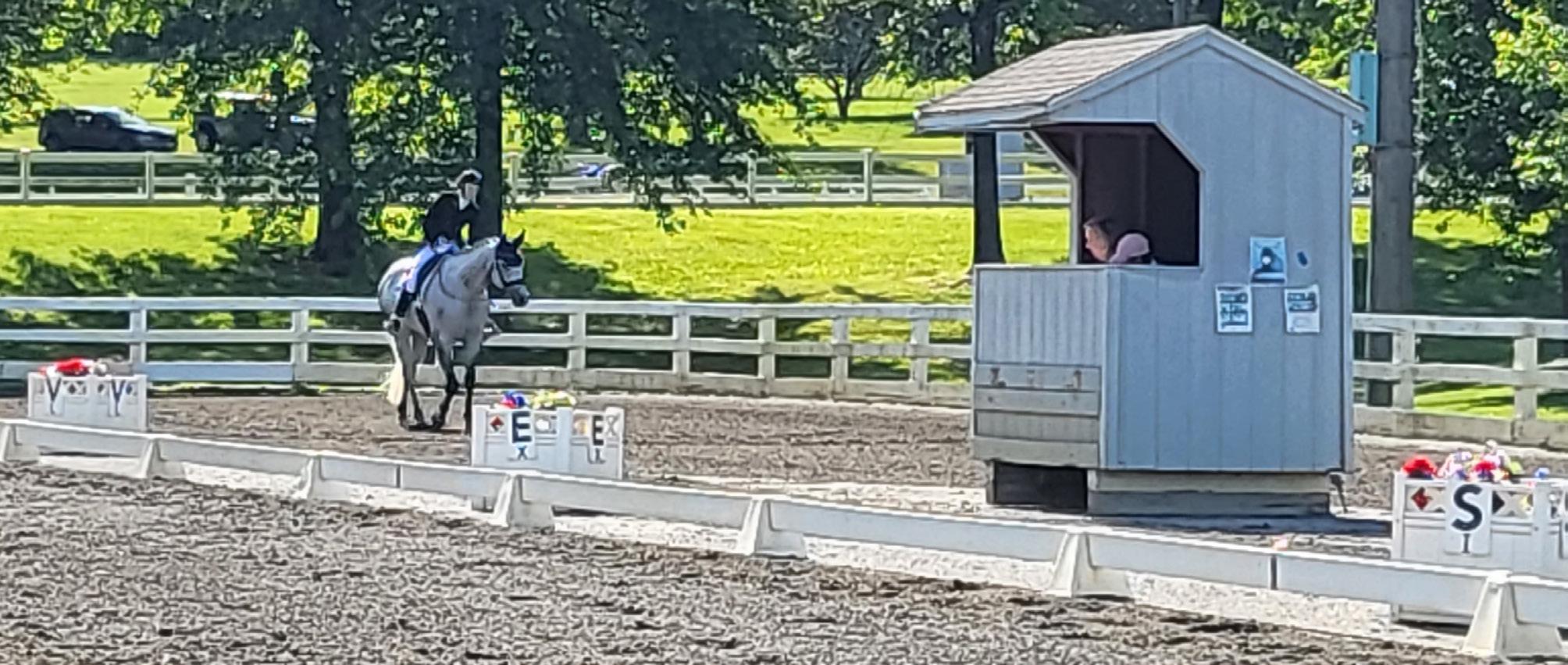
2 minute read
Amateur Dilemma
By, Meredith Rogers
On Saturday, May 27, I had the privilege of scribing for the judge at C at the ESDCTA Memorial Weekend show. Yes, I said privilege, even though it was a very long day and I got a hand cramp. I got to watch amazing rides with commentary from an excellent judge. How awesome is that?!? I haven’t scribed for a normal show in a long time since it usually involves giving up a weekend day and in the last few years I’ve done a lot of showing on weekends (and I spend a lot of weekend time putting this newsletter together). I used to scribe for all the ESDCTA shows and I currently scribe at Dressage at Devon every year for which I usually do the breed show. It’s so fun to see the up-and-coming stars at what is often their first outing!
Advertisement
Some things that I learned while scribing…
1. The judge wants you to do well. They love watching a quality ride and don’t care if it’s at Training Level or Grand Prix. Seriously, they are so thankful when someone executes a correct and graceful lower level test.
2. They can’t see how perfect your braids are or how fancy your coat is. They do take note if you are not neat and tidy but as long as the ride is good, they don’t care if you have bling on your helmet or the brand of your breeches. However, being a mess is a sign of disrespect to the sport, and by extension the judge.
3. Judges can only remark on what they see on that day. You know better than anyone if yor ride was typical of what you’re doing at home or not. However, when they do give a comment, you should really read it because they are try- ing to help. They hate making us scribes write too much, so they focus on what they think is most important for you to understand about your ride (whether it’s something you did well or something that needs fixing).
4. Judges don’t make a living judging. They do it because they love the sport. It’s a pain to travel across the country and sit in a hot booth all day trying to pay attention to every detail of every ride. They all get the same education to become a judge and must continue their education to remain licensed, but they are only are only human, so please cut them some slack if you don’t agree with their assessment. See #3.
In addition, seeing both bad and good rides, especially at the levels I’m showing have reinforced what I’m doing in my own riding. Listening to the judge’s commentary, has helped me figure out what I should emphasize when I do each movement. Invaluable. At one time or another I’ve volunteered for each job at a show. Two other jobs I really enjoy are ring steward and runner because then I get to watch all the rides without the interruption of having to look down a lot to write. Warm-up ring steward is another good job because I can see how everyone schools. You watch 5 people getting ready for the same class and you’ll see them doing 5 totally different warm-ups! If you want to see how the judge’s comments impact scores, being scorer is good for that – you tally up all of the score sheets in the comfort of air conditioning.
Regardless of what job I do, I always meet new people with a passion for our sport and who are more than happy to talk horses all day long (as opposed to most other people in my life). You may think that volunteering at a horse show doesn’t compare to volunteering at a soup kitchen, but the feeling you get is the same and it helps the club save money, which they can then give back to members in the form of grants (see Paige’s article in this issue to see the impact a grant can have). Not that I would ever dissuade anyone from volunteering at a soup kitchen, but if you have a day, or even half a day, please consider volunteering at a show this year.
Please go to https://njfb.org/advocacy/#/ To help.




